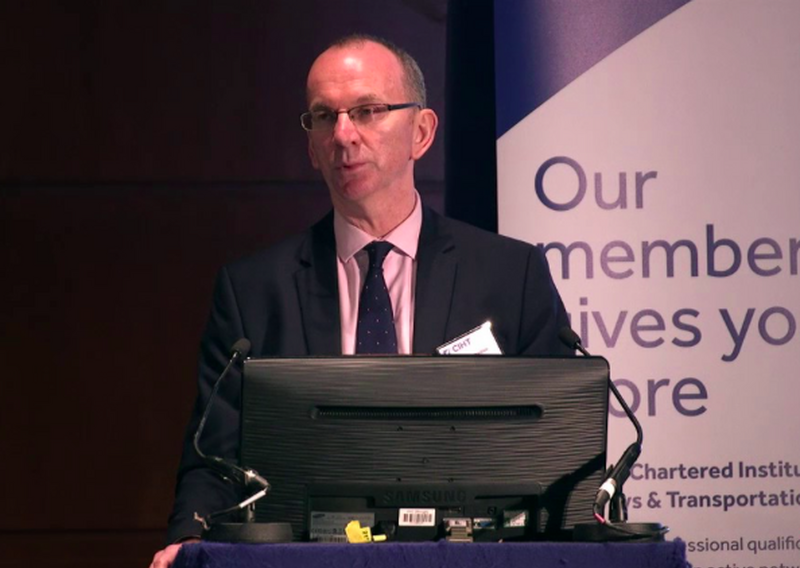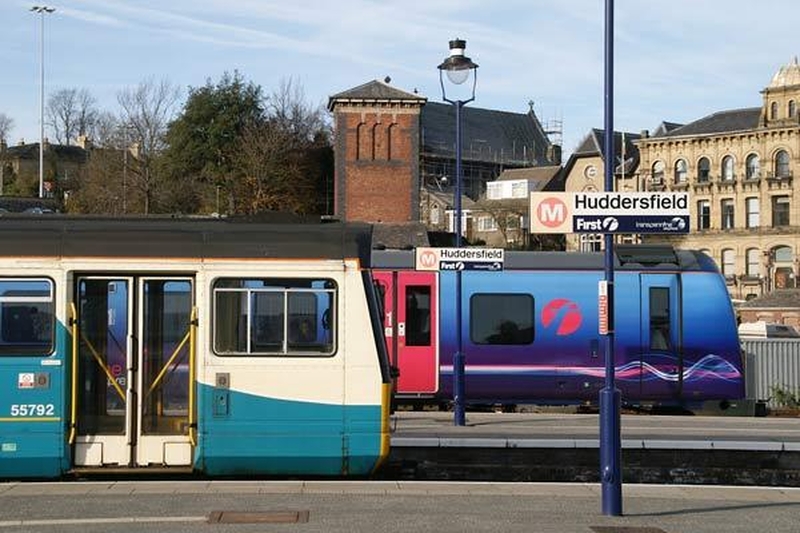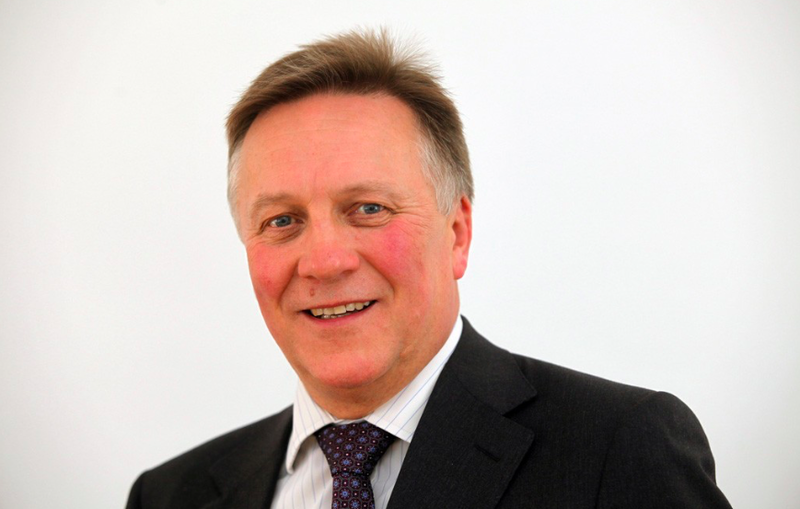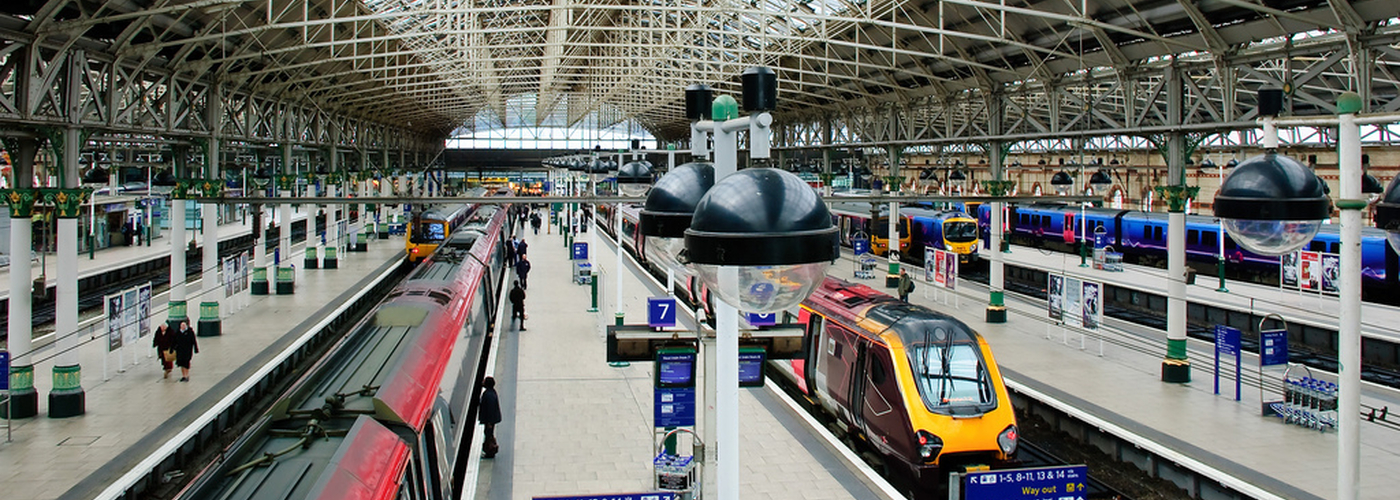Becoming a statutory body is key - but will it actually happen? Councillor John Blundell speaks to two senior TfN figures
Following former Chancellor George Osborne's call for a 'Northern Powerhouse' in 2014, Transport for the North (TfN) was set up the following year to address a serious issue: the perennial underfunding of transport projects in the north of England.
Rather than opting for a northern assembly - like the one John Prescott so passionately tried to deliver - the decision was made to instead develop a regional transport body, something which had never before been established in the UK.
It was a decision which seemingly went against the grain of the government’s devolution agenda to use directly elected mayors to deliver directly accountable bodies. Indeed, some are already beginning to ask questions about TfN’s future.
Just over a month ago, the electrification of the rail route between Manchester and Leeds - a flagship scheme backed by TfN - was shelved. The very next day, London's £30bn Crossrail 2 project was granted further funding.
Previous to this, the TFN's chief executive, David Brown, decided to take a position in the private sector, his departure threatening to leave the TfN ship rudderless at a time when it is still trying to navigate its way out of the harbour.
Below, in an attempt to get the inside track on the future of TfN, I speak to two of the organisation’s most senior officers, Strategic Roads Director Peter Molyneux, and Nigel Foster, Strategy & Policy Director, both of whom have been working towards a statutory TfN that could deliver a better-funded and more sophisticated northern transportation network.

How did you come to work at TfN?
Peter Molyneux: "I used to be a Corporate Director at Trafford Council but took on a more strategic role at Transport for Greater Manchester (TfGM) looking at highways - which is why I now focus on the road network at TfN. We've already had some success, with the minister (Chris Grayling) showing positive support for our plans for a major route network."
Nigel Foster: 'I'm currently the strategy director at TfN and have delivered some significant projects, working in areas such as high-speed rail, making the case to government. I used to work at Arup."
"We have been looking at a 30-year plan, trying to get the highways and the rail networks to speak to each other"
You’ve just been on a pan-northern road show, looking for feedback on your plans. At the same time you've tendered consultants to look at developing your strategy. You must already know the key schemes, so what's it all in aid of?
NF: "We are building up an evidence base. We want to make sure we make the case for investment to improve connectivity. This is not transport schemes for transport schemes’ sake. Some things need to be delivered on this level, not just within a city area. What the partners have decided here is what we want to put forward."
PM: "Our aim is about growing the economy, revolutionising how we travel. We have been looking at a 30-year plan, trying to get the highways and the rail networks to speak to each other a bit better. We are doing this because building infrastructure doesn’t just happen tomorrow. You need a plan and business needs certainty to invest."
Is uncertainty a problem?
PM: "Before Highways England was created, the Highways Agency only had twelve months to plan. Having a plan like ours allows people to pause and take stock. What’s the bigger picture? More choice, more reliable and quicker journeys. We want growth in quality jobs.

Is having a 30-year plan just a way of getting around the current processes? You can't justify the funding so you'll change the rules of the game?
PM: "Not at all. By looking at corridors, coast to coast, city to city, we have all reflected on what the future will look like and then said “this is what we need to do to make this happen over a long period of time”. It gives business confidence to invest.
By 'we' I presume you mean the royal 'we' - 'we' being the North. But who is actually in charge of TfN? The chair and CEO are unelected. When do the public get chance to stick the boot in?
PM: "Well actually the public are in charge; we have elected officials on our board, such as Andy Burnham (Mayor of Greater Manchester), Steve Rotherham (Mayor of the Liverpool city region) and Sir Richard Leese (leader of Manchester City Council and Deputy Mayor). We are as accountable now as we will be when we become a statutory subnational body. We are currently a voluntary partnership. The only way we become a subnational body is if everybody signs up. We are going through the motions of getting everybody to agree to the regulatory powers, every transport authority and LEP is going to have a say."
NF: "Look, we are a partnership: nineteen local authorities, Network Rail, HS2 Ltd, Local Enterprise Partnerships, so the purpose of using the royal 'we' is because the partners have decided TfN is needed to support jobs and growth in the North. And we do have a head — John Cridland (TfN chair)."
But he isn't accountable to the public.
NF: "Yes, but the board is made up of political representatives."

So cries for a ‘Council of the North’ - is that something which needs to happen? Would a new assembly add any legitimacy to your cause?
PM: "We are working to get the powers we need to achieve what we want. We will have a mandate from all transport authorities. The question about northern devolution needs to be answered by the political and business leaders, not us. This won’t hold us up, we already have a record of working together. You could never have got this together in less than twelve months. There is coming together to go give us a mandate to speak as one voice. This has been bottom-up driven. All our job has been is to capture that and tell this compelling story."
"It’s always conceivable that it may not happen. But all the noises from government have been towards it.
Are you worried about becoming a statutory body? Nothing is set in stone, and the bottom-up driver (Sir Howard Bernstein) is now off the pitch. Now the minister says you're not having rail electrification. When will you start getting itchy feet?
NF: "It’s always conceivable that it may not happen. But all the noises from government have been towards it. It is not if, but when. There is an expectation that there will be sub-national transport bodies.
Will you get the powers you want?
PM: "Look, we are the first. Whenever you are the first you have to prove your credentials. It will all depend upon how successful we are in delivering our manifesto that we're developing in terms of our transport plan. Our success will be judged by how we work with our national bodies and our constituent partners."
Are you going for David Brown's job?
NF: "I’m not revealing anything, you should ask Peter..."
PM: [laughs] "No!"
Speaking to Molyneux and Foster made the whole palaver over rail electrification and a council of the North seem largely trivial. I had expected them to dodge questions about how TfN was governed and whether or not it would ever actually become a body with real powers. On both fronts they were confident that they could, and would, deliver their agenda.
As a politician in my own modest way, I am no fan of quangos and do not believe that public money should be spent without transparency and accountability. But I am quietly confident that the model adopted by TfN will be a success. They are clearly conscious of their role in meeting the needs of the whole of the North and seem to have the right strategies in place to enable them to deliver substantive results.
It remains to be seen, however, whether they will manage to unlock the levels of investment required to transform the northern economy to the extent that this region expects and deserves. At this stage, we can only wish TfN well in its battle to deliver a more equitable settlement for the North and its inhabitants. Let us hope they succeed.















